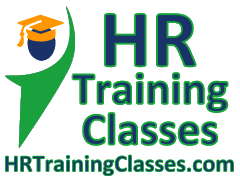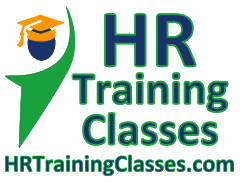Instructor: Elga Lejarza aPHR, SHRM-CP, PHR, SPHR, SHRM-SCP, GPHR
Why You Should Attend This Training Program
Handling employee complaints internally is a highly sensitive, multi-faceted process not just mandated by Federal law in most circumstances but significantly necessary to create a positive work environment that will be conducive to high levels of employee engagement. It requires a practice-based, step-by-step approach and the understanding of the internal complaint handling process, the legal requirements organizations must observe and the necessary technical and communication skills. In recent years, internal investigations notes, documentation, summaries and reports have come under heightened scrutiny by outside agencies, lawyers in discrimination cases and the courts. It is critical that all documentation is well written.
Learning Objectives
- Learning step-by-step guidelines for investigating any complaints
- Becoming a competent, effective, and confident investigator
- Understanding of best practices for preventing, identifying and managing employee-related issues that have potential legal concerns.
- Understanding different types of workplace investigation. e.g. Sexual harassment, violence, discrimination, accidents.
- Determining who is a credible witness.
- Learning how to handle “He said, she said” situation.
- Determining if a suspension is always appropriate with the alleged accused while the investigation is ongoing.
- Understanding what is considered a prompt and thorough investigation.
- Understanding where we file investigation records.
- Understanding confidentiality responsibilities during an investigation.
- Preventing retaliation during and after an investigation.
- Understanding the importance of training our first line of defense on how to respond to complaints.
- Determining how to select the appropriate investigator and investigation strategy.
- Reading/interpreting body language during investigatory meetings.
- Understanding how to manage difficult witnesses such as defensive or hostile witnesses.
Target Audience:
- HR Managers
- HR Directors
- HR Generalists
- Employee Relations
- Business Owners
- Risk Management Leaders
- Executives
Day #1 – Understanding the Law and Prevention Steps
Overview of how Federal laws impact investigations
- Title VII of the Civil Rights Act of 1964
- FLSA: Fair Labor Standards Act
- OSHA: Occupational Safety and Health Act
- ERISA: Employee Retirement Income Security Act
- FMLA: Family Medical Leave Act
- ADA: Americans with Disability Act
- ADEA: Age Discrimination in Employment Act
- PDA: Pregnancy Discrimination Act
- NLRA: National Labor Relations Act
- WARN: Workers Adjustment and Retraining Notification Act
- COBRA: Consolidated Omnibus Budget Reconciliation Act
- HIPAA: The Health Insurance Portability and Accountability Act
- SOX: Sarbanes-Oxley Act
- Employment at will/wrongful discharge
- Privacy issues and management rights in the workplace
Case Studies – Interactive Discussion
- Review case studies revealing types of discrimination and harassment
- Review retaliation situations
- Identifying aspects of cases requiring investigation
Employers Rights and Obligations
- Defining an internal investigation
- Understanding what triggers an investigation and what doesn’t
- Examples of workplace issues that may result in an internal investigation
Day #2 – Investigative Techniques and Issues to Consider
Investigation Considerations
- Understand the Standards of Proof and what is expected of the investigator
- Recognizing timeliness obligations
- The critical need to ensure confidentiality
What to Do When a Complaint Arises
- Documenting the issue and how to “draw the box” so that you know what to investigate
- Understanding the importance of developing a chronology of events and witnesses
- Determining what issues require a formal investigation
- Setting expectations with the reporter of the complaint
- Addressing the complainant that doesn’t want their complaint investigated
- Protecting the complainant from retaliation
- How to address anonymous complaints
The Investigator Role
- The responsibilities of an investigator
- Determining who else should participate
- Identifying decision-makers who will oversee your investigation
- Ensuring “need to know” confidentiality
- What to do when an employee wants their attorney or another person present
Planning and Scoping the Investigation
- How to balance completeness vs company disruption due to the impact of an investigation
- When to use administrative employment suspension
- Gathering contextual and related information
- Determining the order of witness interviews
- Developing witness questions and proper order of questions
Setting the Table with Witnesses
- Why you must avoid group interviews
- The importance of developing trust
- Defining for witnesses what is expected of them before the interview
- Explaining your role and what you will do with the information gained from the witness
- Determining what information to reveal to witnesses and in what order
- How to use demeanor evidence in assessing witness credibility
- Wildcards that witnesses sometimes play
- How to close the witness interview
- How to confront the accused
Resolving the Complaint
- Reviewing the evidence and reaching conclusions, interpreting conflicting evidence
- How to discuss findings with decision-makers
- Steps to take with the accused whether or not a violation occurred
- How to write responses to the complainant and accused explaining outcomes
- Importance of monitoring situation going forward
- How to handle false allegations
- Review of sample closure memorandums and disciplinary documents
Common Pitfalls of Poor Investigations
- Avoiding common mistakes made
- Understanding the danger of making legal conclusions
Review and Wrap Up

